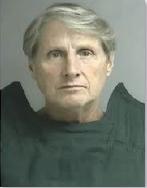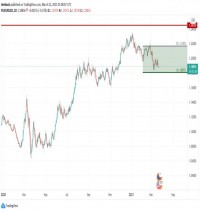|
By Mark Melin The Commodity Futures Trading Commission (CFTC) recently filed a lawsuit against US Bank in what could turn out to be an interesting case. As a depository bank for futures brokerage firm Peregrine Financial Group (PFG), the bank was holding assets in the fraud case when $215 million of PFG's client assets disappeared. Stringent rules have been in place for decades that specify depository processes for handling customer segregated funds with strong penalty already on the books for misuse of fiduciary responsibility. 
Outside his new corporate headquarters in Iowa during better times, Russ Wasendorf Sr was later convicted of fraud after a suicide attempt.
PFG's CEO Russell Wasendorf Sr., now in his 70s, received a harsh 50 year sentence and was ordered to pay $215 million in restitution after his conviction. Mr. Wasendorf admitted providing the bank false documents and attempted to take his life in a failed suicide bid when the fraud was discovered by regulators. The brokerage executive was fond of a jet-setting lifestyle and at one point flew around the world in a private jet to rock concerts with his second wife and owned a variety of companies including several restaurants. A former documentary film director, Mr. Wasendorf was known to spend lavishly on industry parties to promote himself as one of the top industry players, a goal that remained elusive. He had PFG built a spectacular $20 million corporate facility in a small Iowa town just prior to the firm's demise in July of 2012. Questions still persist as to the whereabouts of missing money. Now without access to capital and much of his family disowning him, he is now said to be in prison contemplating a memoir. Mr. Wasendorf, known as "senior," is author of several financial books and, in better times, had talked about writing a fiction novel. The PFG incident marked the first time in history a depositor lost money out of a customer segregated futures account that resulted in the brokerage firm CEO being convicted of fraud.PFG had both a retail direct managed futures business headquartered in Chicago and an institutional managed futures division headquartered in Los Angeles that worked with Registered Investment Advisors (RIAs). CFTC Pursues Violators of Bank Fiduciary Responsibility In a statement discussing the matter, David Meister, the CFTC's Director of Enforcement, said: "The Commodity Exchange Act and Commission rules protecting customer funds impose obligations on banks that hold those funds. As should be apparent from today's action, we will seek to hold a bank to account if it falls short on complying with customer fund protection obligations. Wasendorf stole vast sums of customer money, but his crimes do not excuse U.S. Bank from its own independent responsibilities." This could be an apparent reference to the generally known fact that banks have extraordinary fiduciary responsibilities when handling customer segregated funds. 
This prison photo was splashed on the cover of the New York Times business section after his failed suicide attempt and later admission of guilt.
US Bank Defends Itself US Bank has vowed to defend itself but did not comment directly on the issue as to if they had a signed depository agreement between US Bank and PFG. If they had such an agreement in place, one might expect US Bank to be in a different legal position than without the agreement. Instead, the firm released a blanket release to the press: * Like the CFTC, we are sympathetic to the victims of Mr. Wasendorf's self-admitted fraud. |
|
This article was published in Opalesque Futures Intelligence.
|





 RSS
RSS









